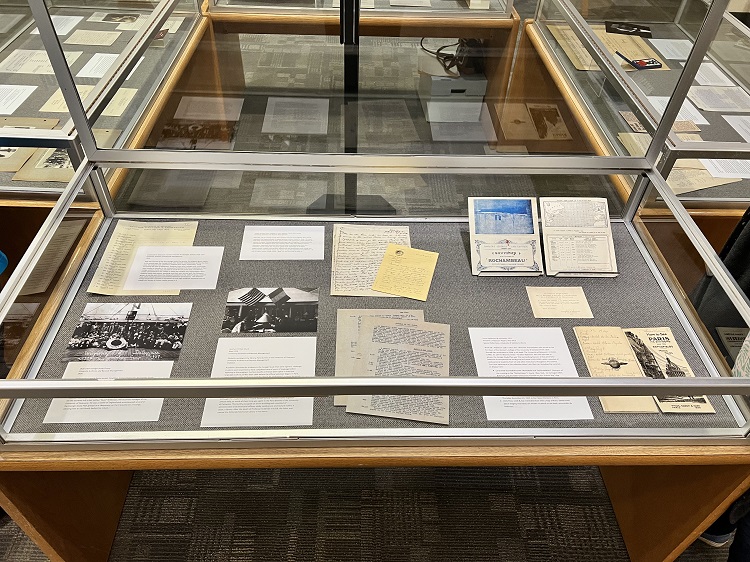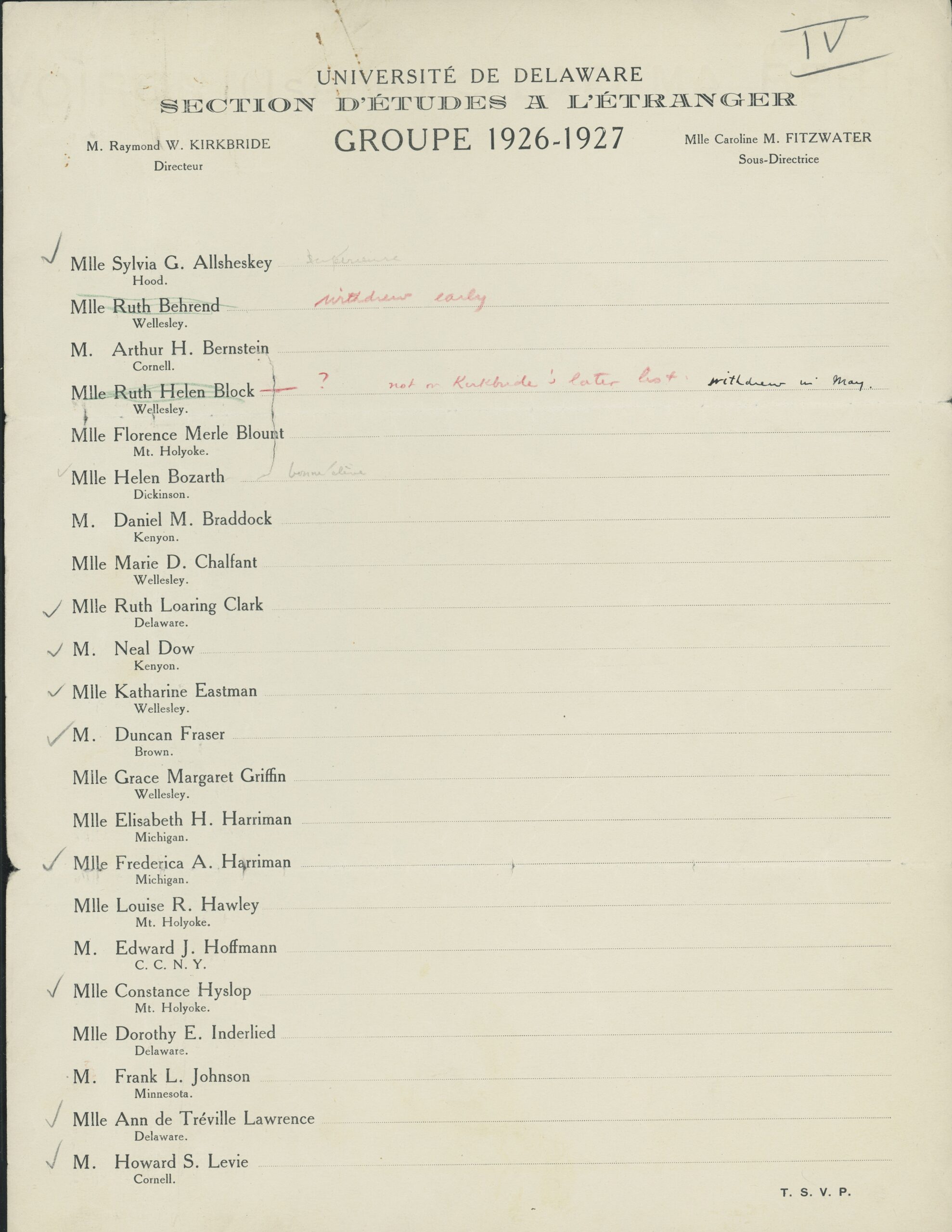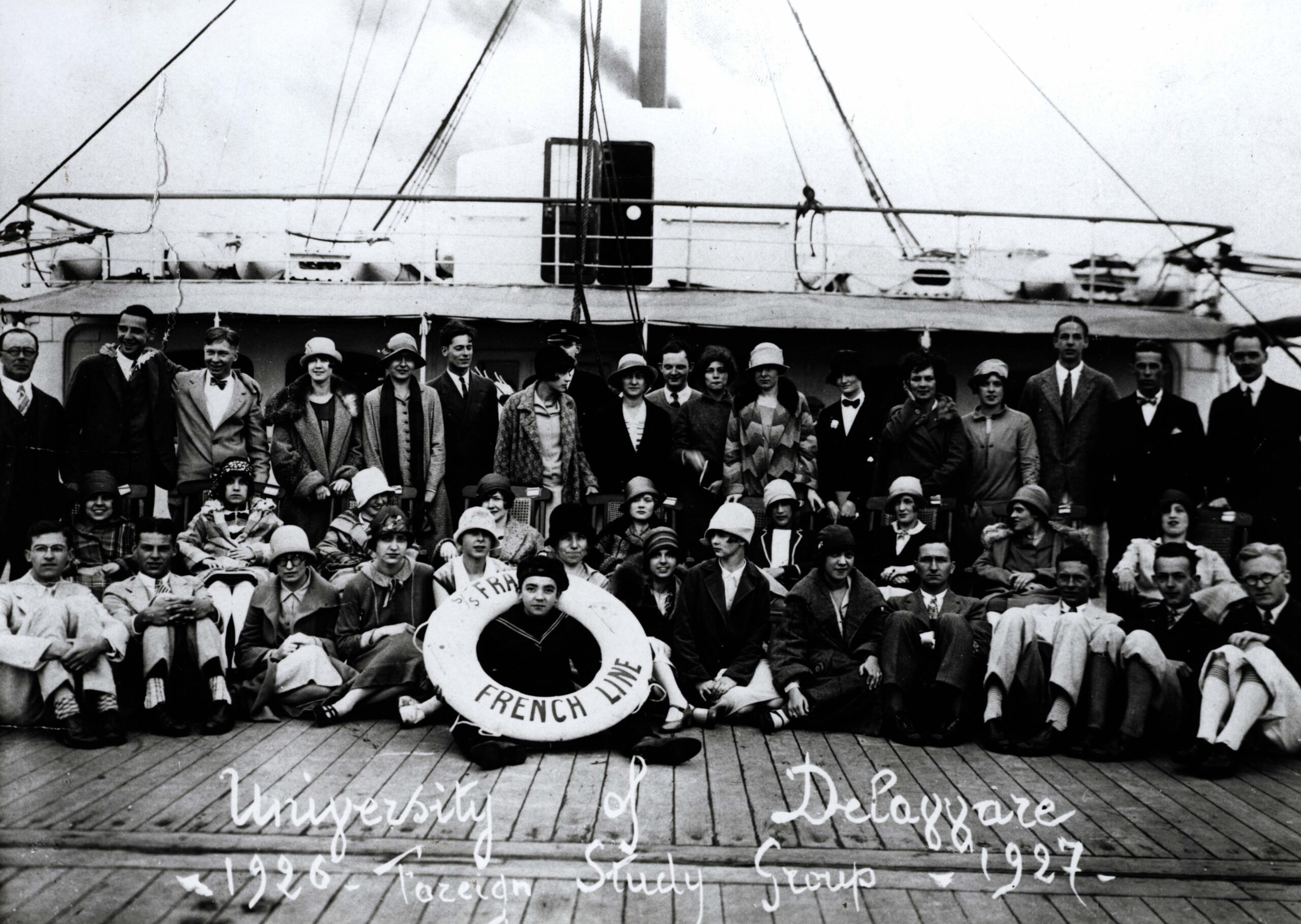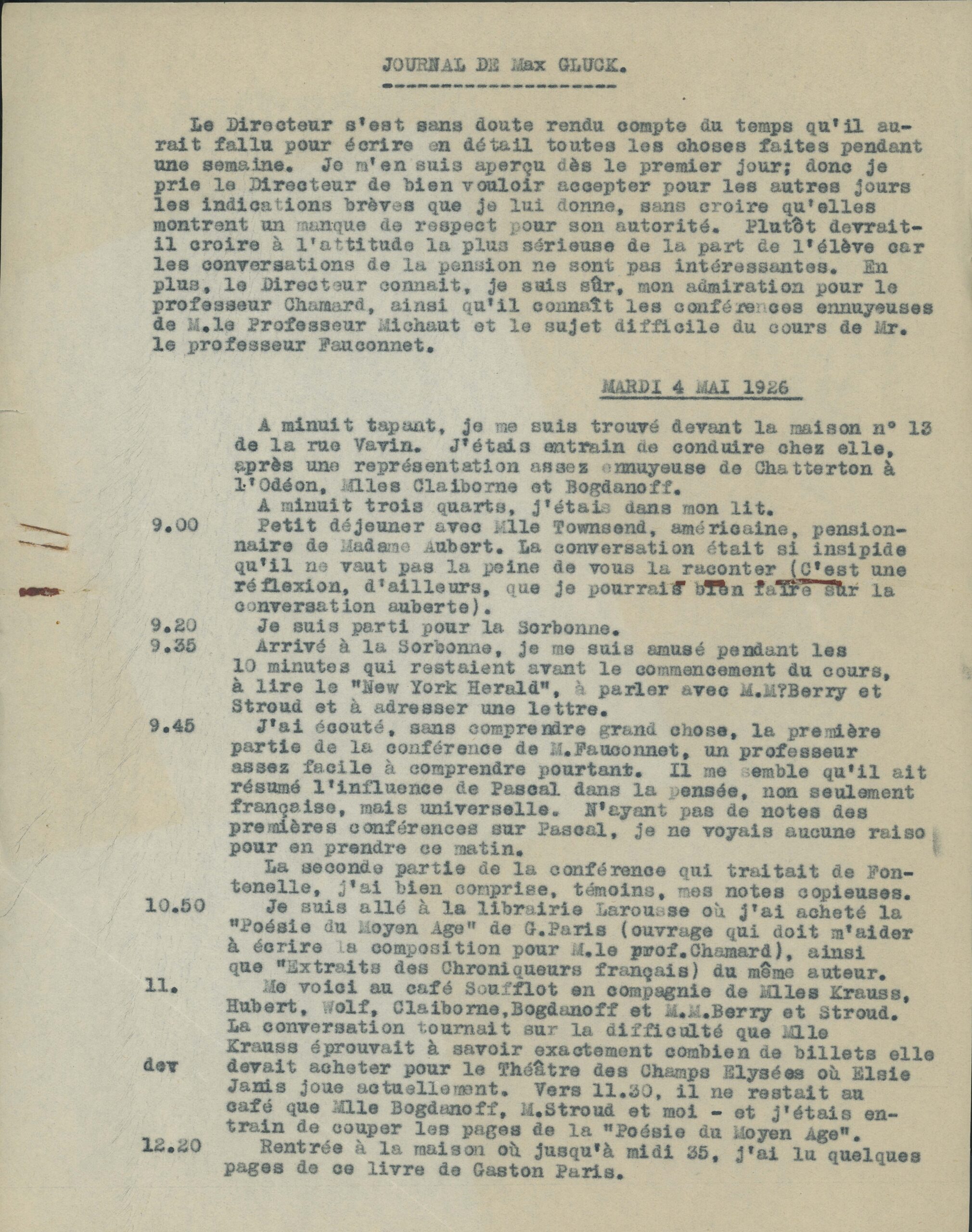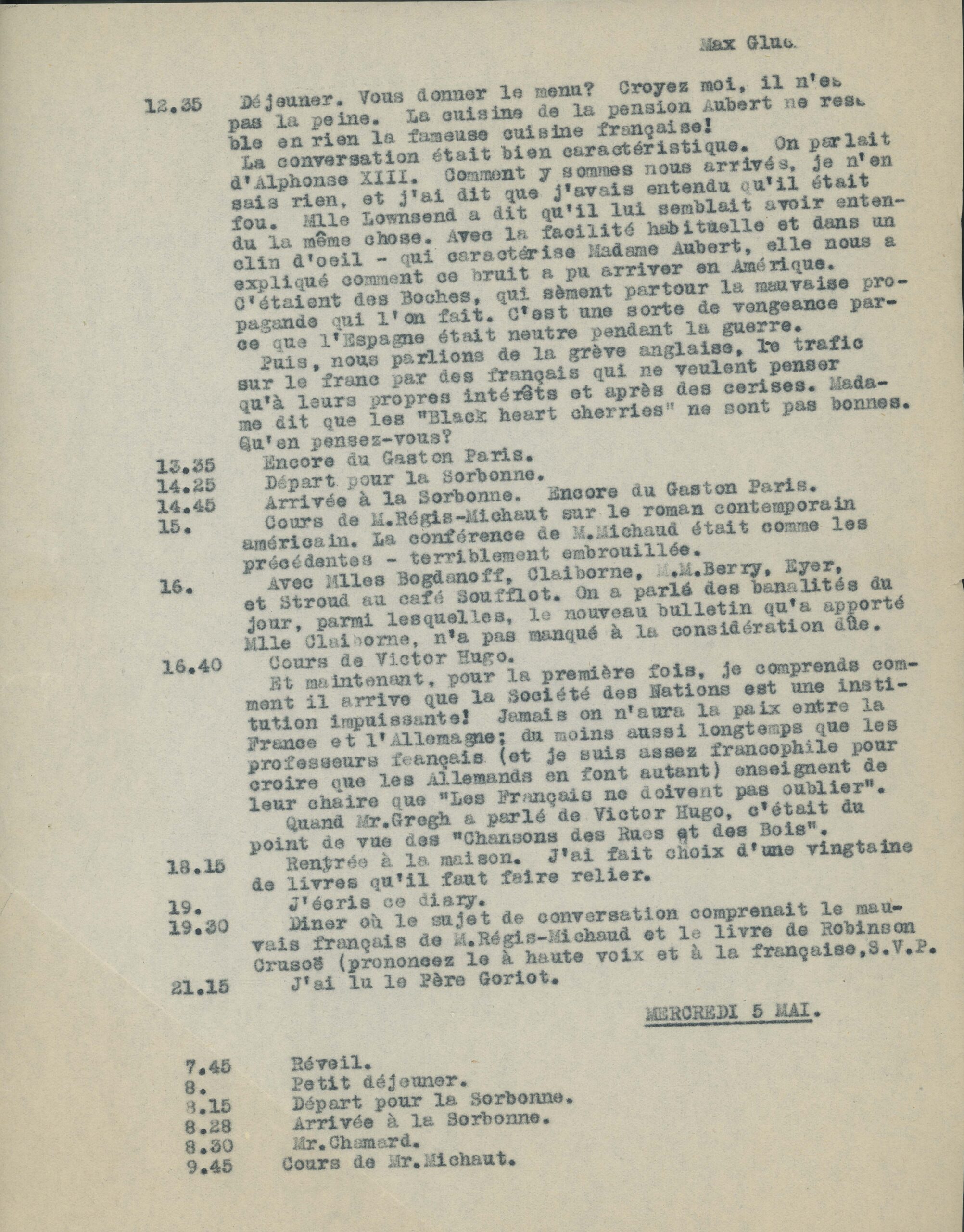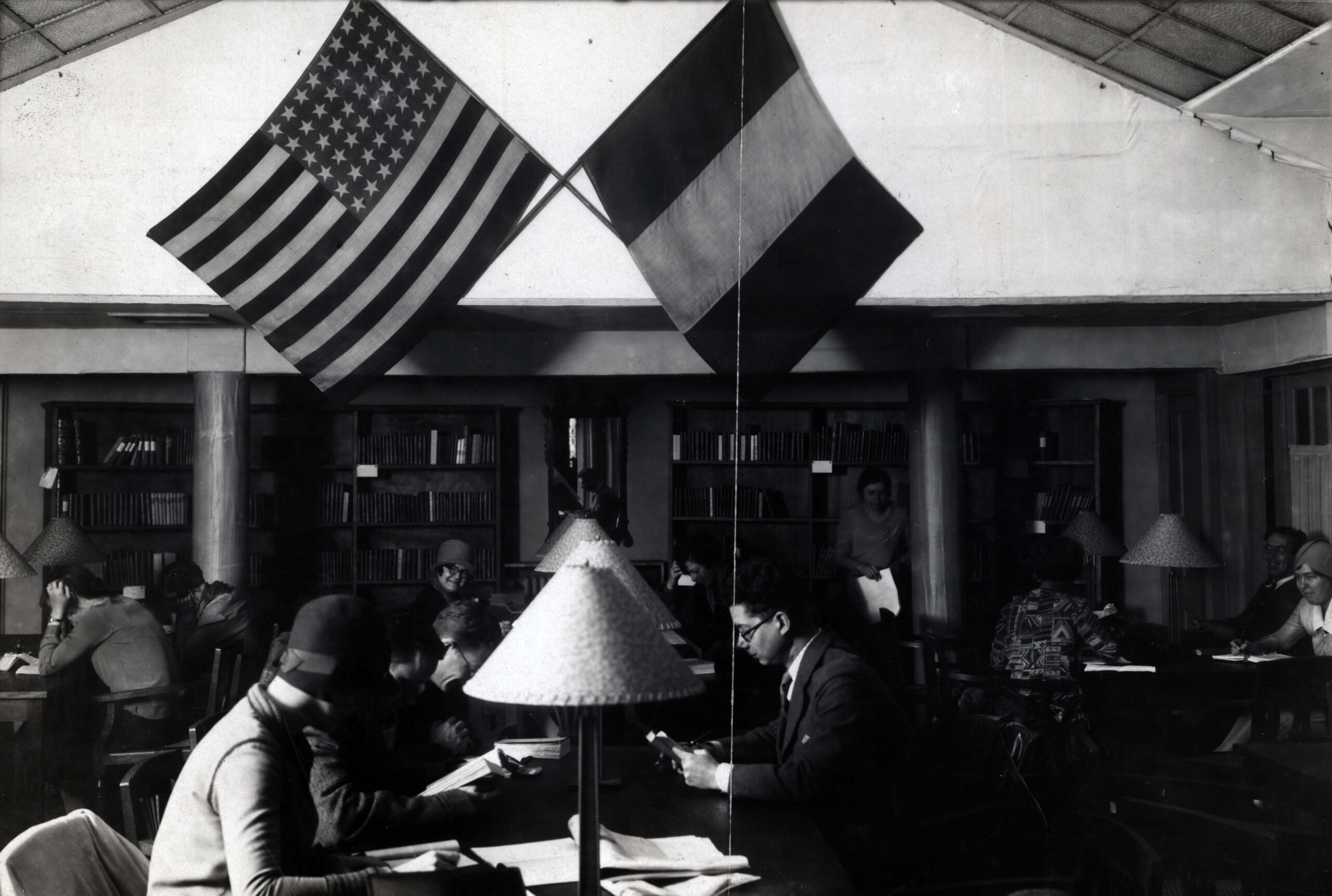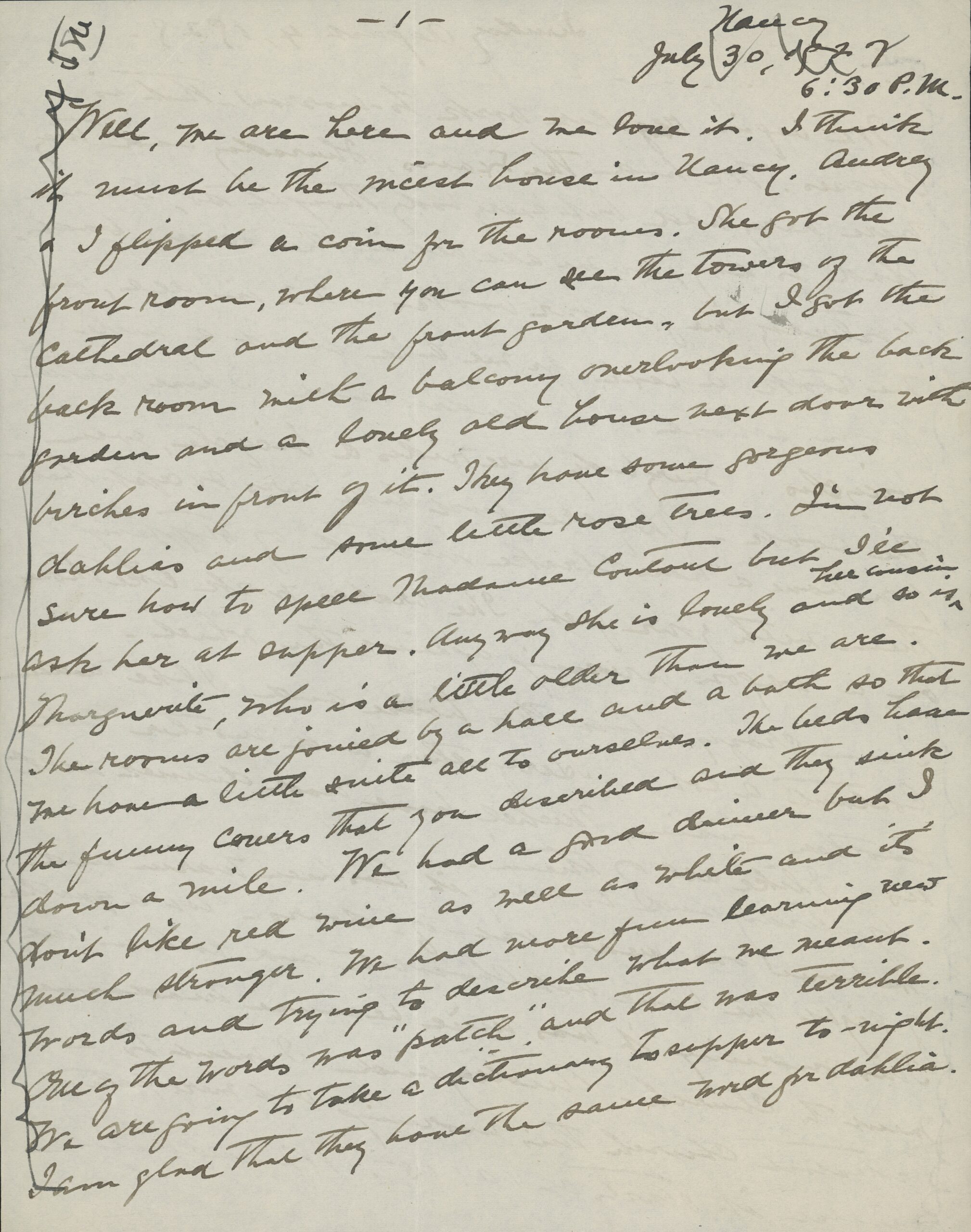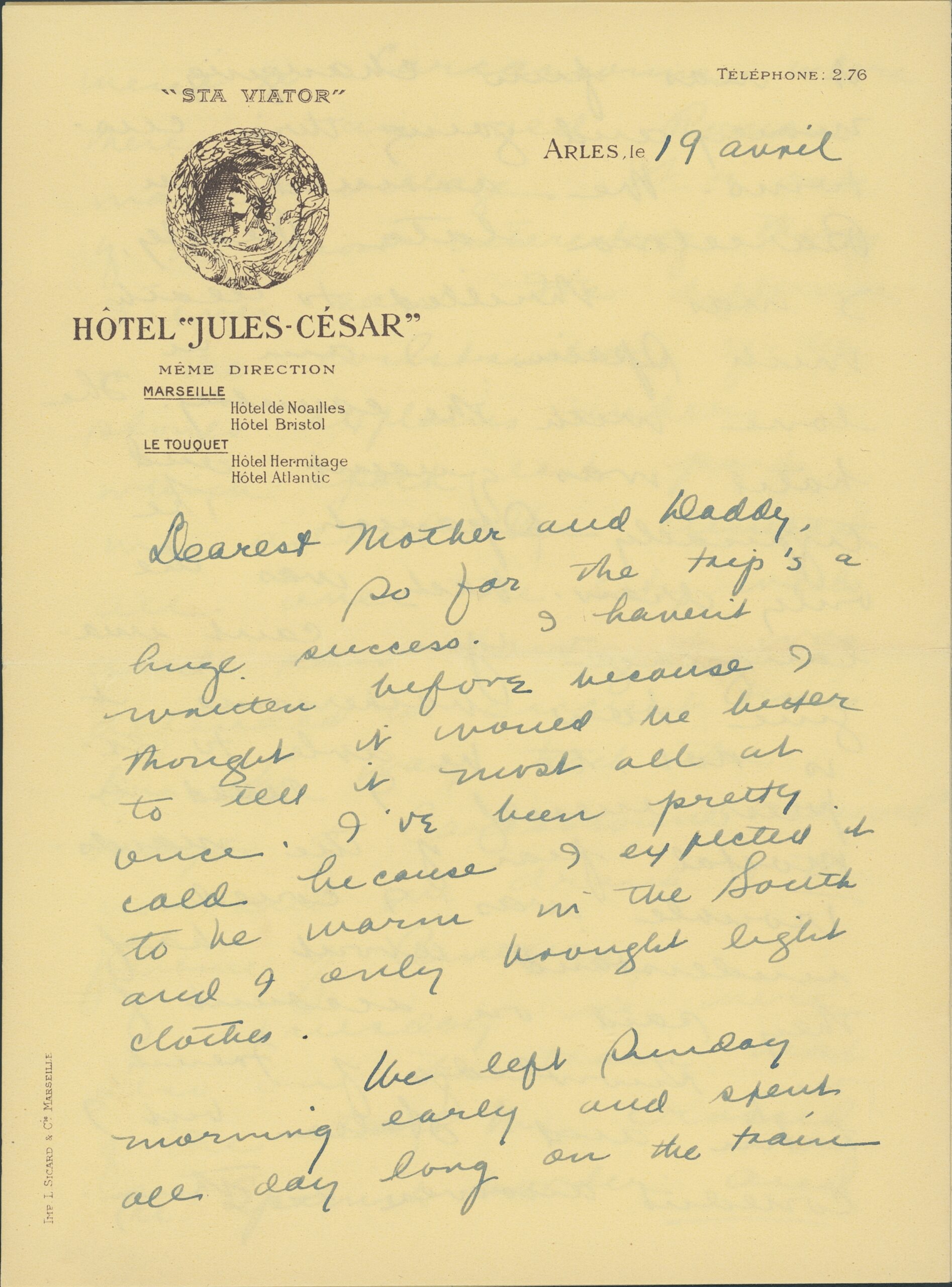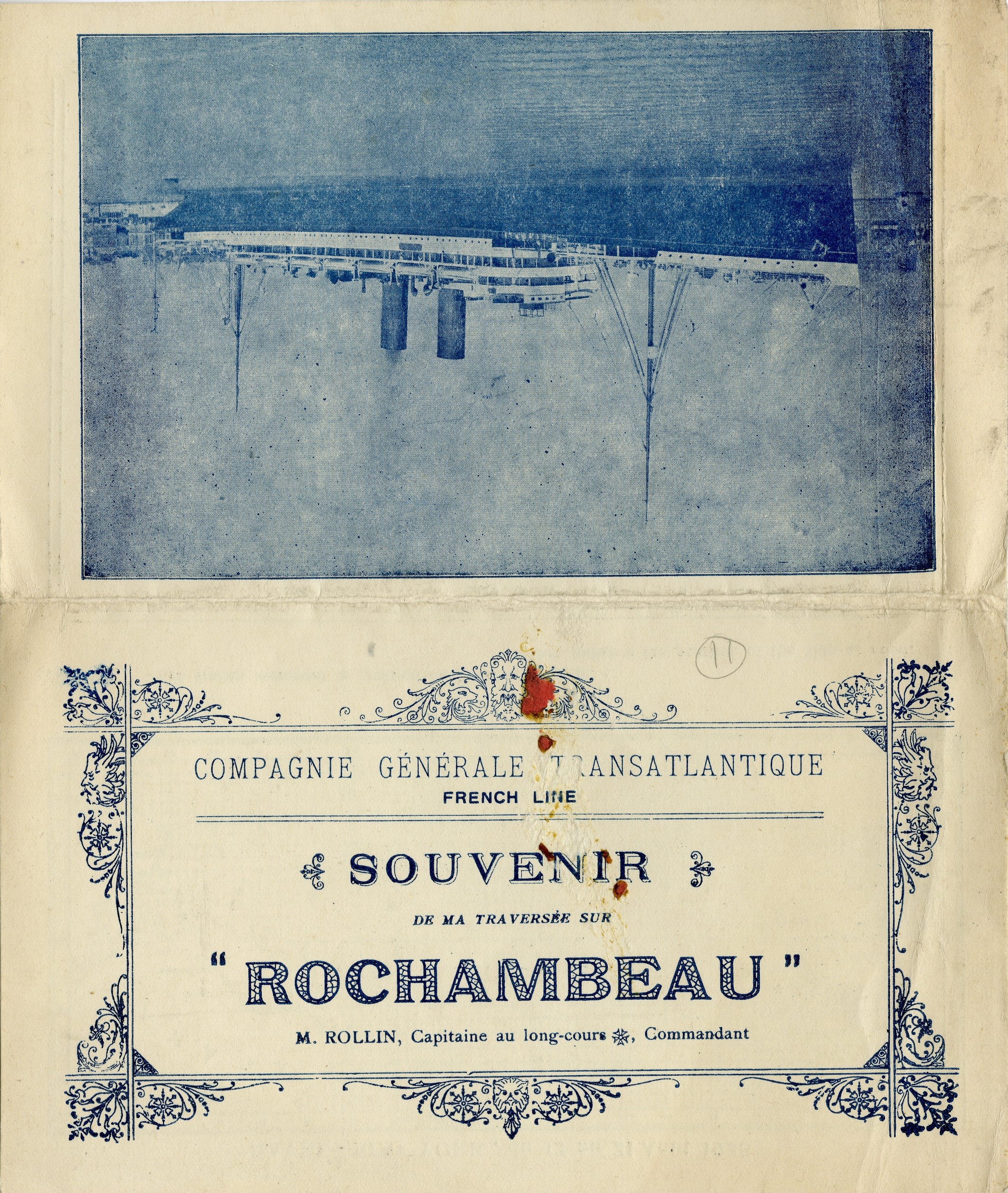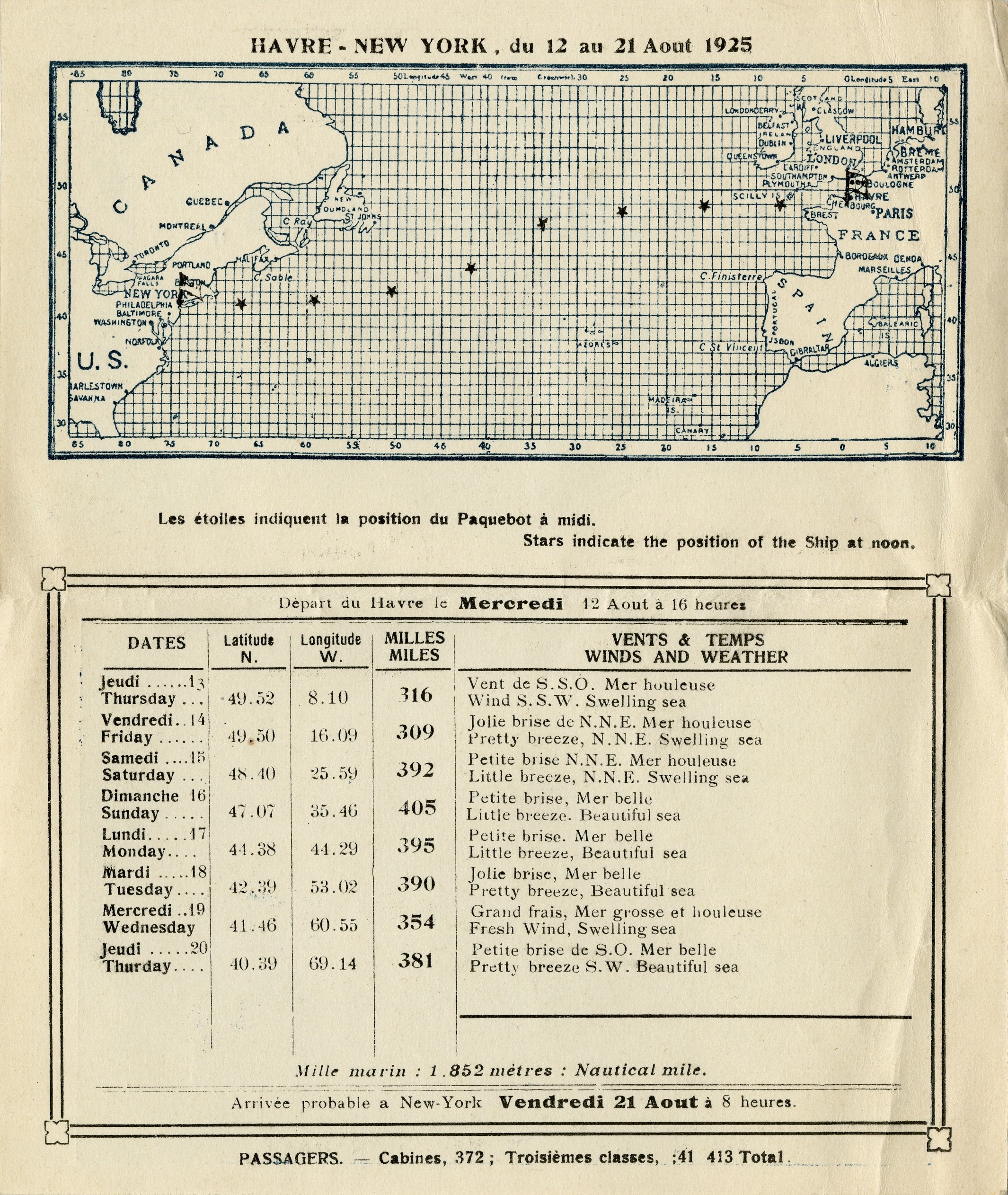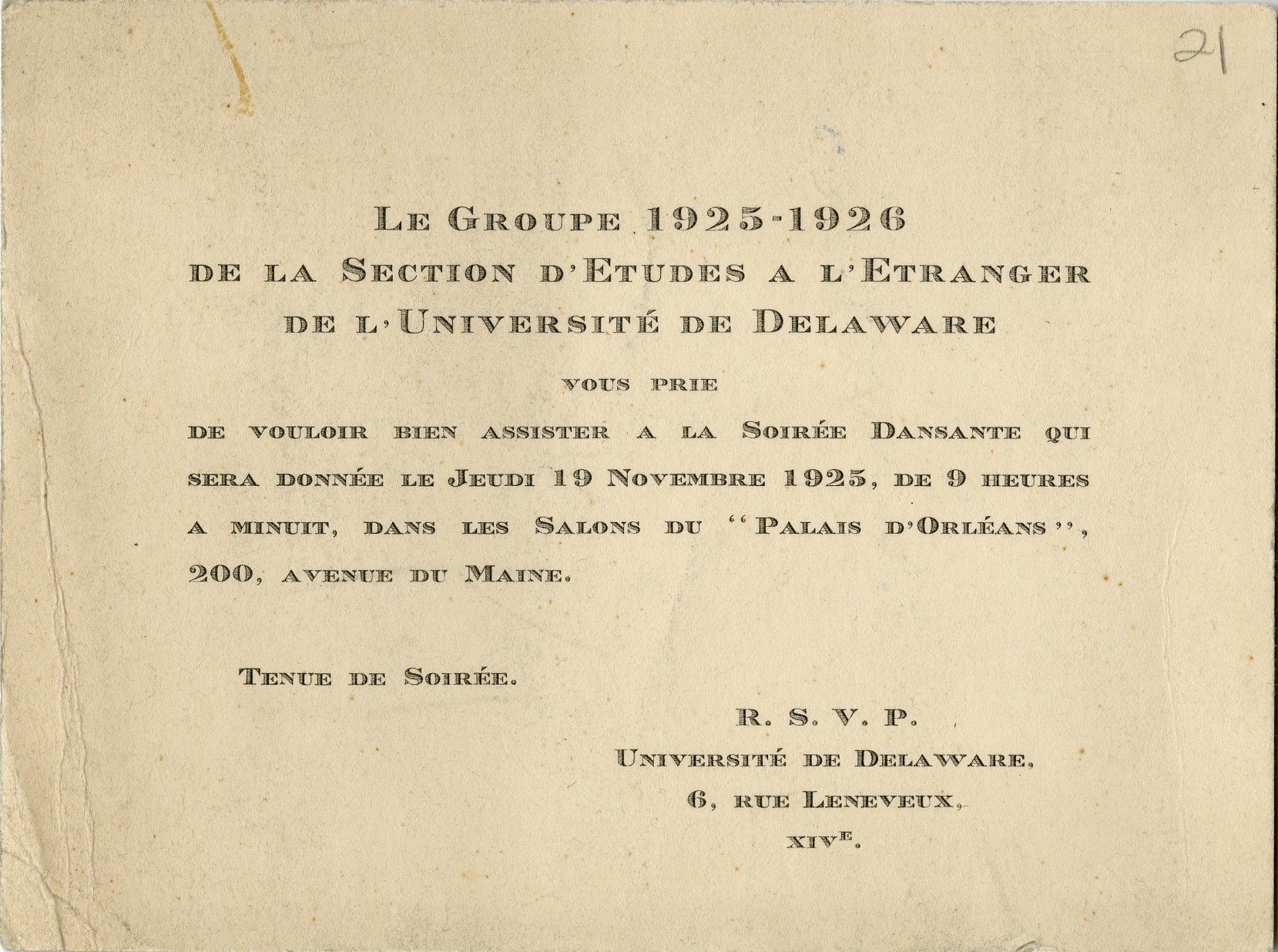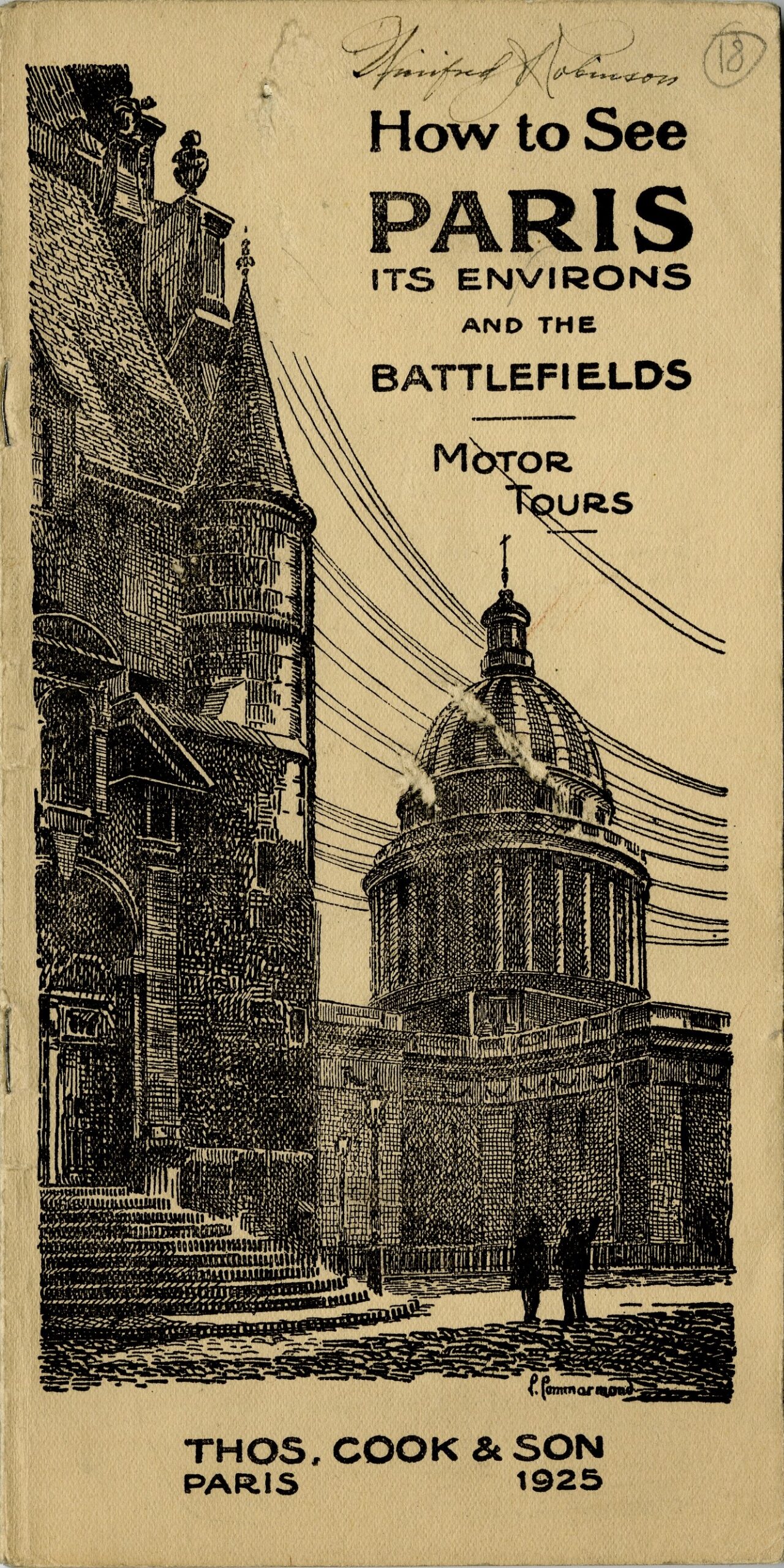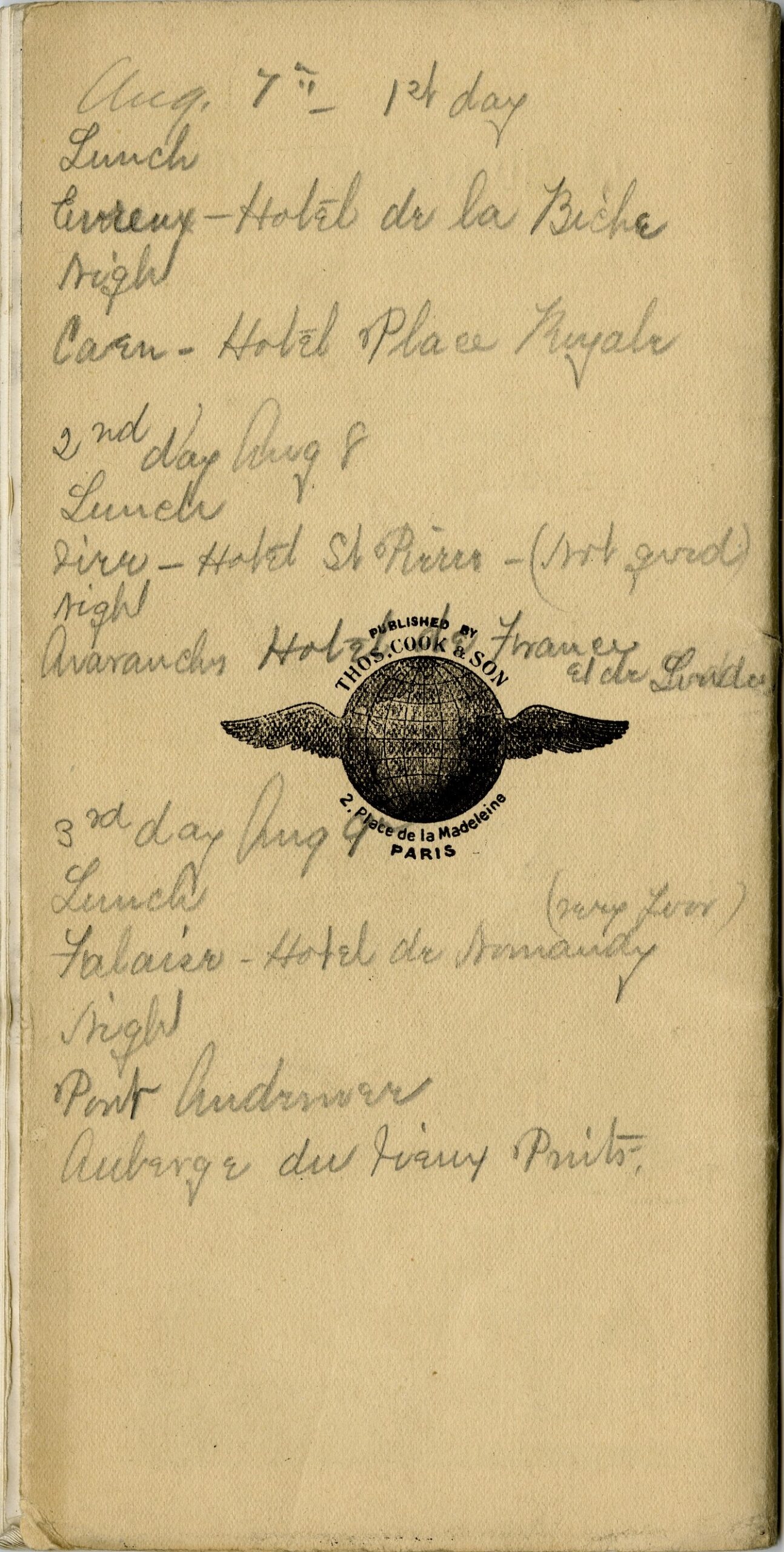With the success of the first Foreign Study Plan group, the program grew rapidly. In its second year, the Foreign Study Plan became coeducational, and by the third year, the program was opened to students from other universities, vastly increasing the pool of applicants. Students from other colleges and universities were invited to transfer to the University of Delaware for the completion of their college careers. It was also possible to enroll for just junior year, transferring credits earned back to the college in which the student was matriculated. Most students chose this option, spending only their year abroad with the Delaware group. As can be seen from this listing of members of the 1926-27 group, students from other schools quickly outnumbered Delaware participants. The Delaware Foreign Study Plan acquired a reputation of such high academic standards that no college was known to refuse credits earned in it.
Unlike today’s rapid flights across the globe, transportation for the Foreign Study Plan groups moved at a more leisurely pace. Students had some time to get to know one another crossing to France on a transatlantic liner, a trip that averaged about 5 days in the 1920s. Students gathered in New York City in late June or early July, where a dinner was usually held in their honor by University of Delaware administrators and other dignitaries the night before departure. Here, the 1926-1927 group is shown gathered on deck during their crossing to France. Professor Raymond Kirkbride is at the extreme right of the last row of the group. On the extreme left is Mr. Arthur “Buzz” Wilkinson, the business manager of the University of Delaware. He was a native of England and accompanied several of the Foreign Study Plan groups as a chaperone on the transatlantic crossings, allowing him to visit family before his return.
Academic demands for students in the Foreign Study Plan were rigorous. Although students were expected to have completed several years of language before applying to the program, the first months in France were spent in intensive language study to perfect their skills before the official semester began. In Paris, most students at the Sorbonne took the “Cours de Civilisation,” a course designed for foreign students, consisting of an overview of French civilization, literature, history, art, philosophy, economic and social development. In addition, some students took courses in economics, political science, and international relations at the Ecole Libre des Sciences Politiques. Whatever the classes, work was done in French, with all English use discouraged, even in casual conversation with fellow group members.
Although the students lived in French homes, group members came together almost daily, as much of their time was spent in the Paris Bureau of the University of Delaware. This facility occupied an entire building and consisted of administrative and secretarial offices; study, conference, and lecture rooms; a salon; a library. After the death of Professor Kirkbride in 1929, the latter was named the Kirkbride Memorial Library in his honor.
Naturally, life for Foreign Study Plan students was not all academic rigor. Group members had opportunities to attend lectures, salons, concerts, plays, the opera and other entertainments in Paris, and to meet with important French citizens at a variety of events. Several sponsored multi-day trips throughout France were also planned for the students each year, touring other cities, the nation’s natural splendors, important historical and cultural sites, and battlefields from the relatively recent Great War. Students gladly took advantage of all these opportunities, eagerly sharing their adventures and impressions with family and friends back in the United States. For many, it was the experience of a lifetime – as one of these letters simply notes, “Well, we are here and we love it.”
Winifred J. Robinson (1867-1962) was a botanist and educator who served as the first dean of the Women’s College of the University of Delaware from 1914 through her retirement in 1938. In his book, The University of Delaware: A History (1986), Dr. John A. Munroe wrote: “To Dean Robinson, who was not easy to please, the Foreign Study Plan was ‘the outstanding feature’ of the university.” Robinson accompanied the third group to France (1925-1926), which consisted of coeducational students from UD and other institutions throughout the country. The travel ephemera in the Winifred J. Robinson Papers dates from that trip, including the materials below:
Robinson and the 1925-1926 group traveled on the “French line” ship Rochambeau from New York to Havre in early July 1925 and Robinson returned on the same ship just over a month later. The card above includes the ship’s route back to the United States as well as weather and location updates for every day of the journey.

